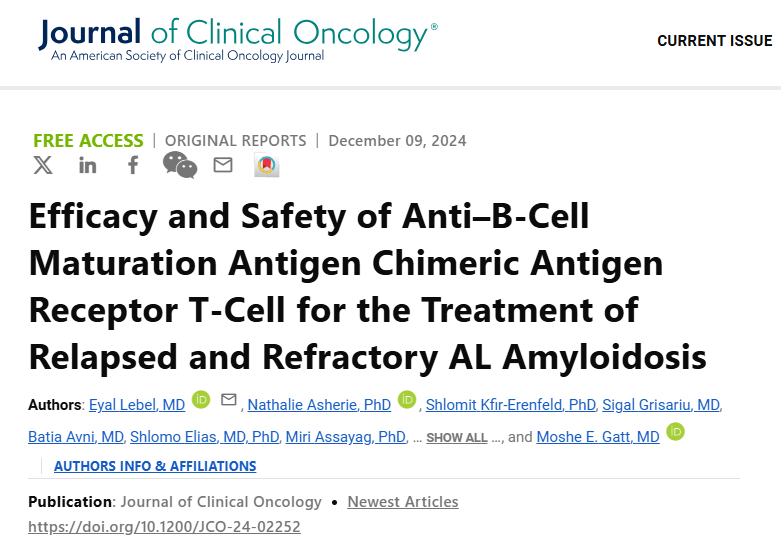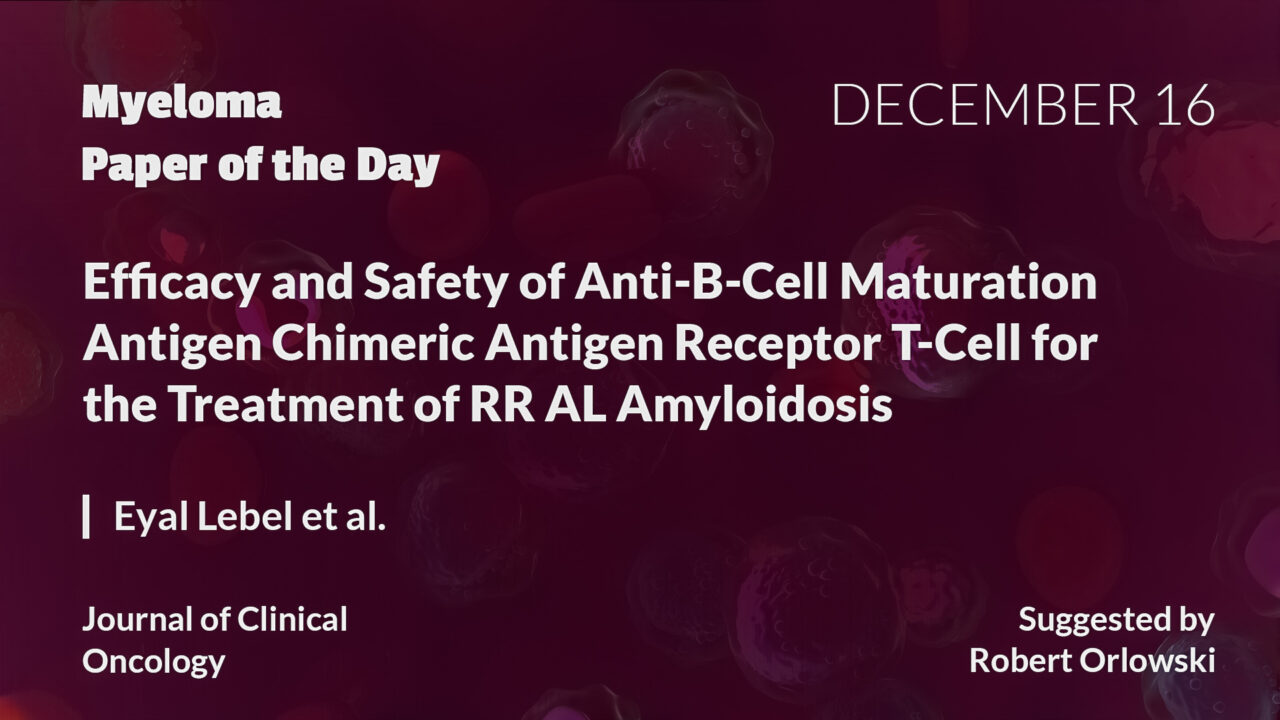Robert Orlowski shared a post on X:
“Myeloma Paper of the Day: Study of HBI0101 anti-BCMA CART in AL amyloidosis finds hematologic response rate 15/16 (94%), CRs in 12/16 (75%), MRD- in 9/14 and 8/13 achieved an objective organ response, but median overall survival only 10.1 months.”
Authors: Eyal Lebel, Nathalie Asherie, Shlomit Kfir-Erenfeld, Sigal Grisariu, Batia Avni, Shlomo Elias, Miri Assayag, Tali Dubnikov-Sharon, Marjorie Pick, Rivka Alexander-Shani, Nomi Bessig, Shlomit Herr, Alaa Shehadeh, Aseel Ishtay, Shelly Pimienta, Vladimir Vainstein, Eran Zimran, Yael Cohen, Irit Avivi, Cyrille Cohen, Polina Stepensky, Moshe E Gatt.

More posts featuring Robert Orlowski.
Robert Orlowski, M.D., Ph.D., holds multiple positions at The University of Texas MD Anderson Cancer Center, including Chairman, Ad Interim Director of Myeloma, and Professor of Medicine in the Departments of Lymphoma/Myeloma and Experimental Therapeutics within the Division of Cancer Medicine.
Additionally, he chairs the SWOG Barlogie/Salmon Myeloma Committee, which is part of the National Clinical Trials Network, dedicated to advancing new therapies and understanding the biology of myeloma.
Dr. Orlowski’s expertise lies in both clinical practice and scientific research, with a particular focus on translating laboratory discoveries into effective treatments for patients. He investigates drug resistance mechanisms in myeloma and seeks to identify predictive biomarkers for treatment response.
Notably, his past contributions include leadership roles in developing proteasome inhibitors like bortezomib and carfilzomib, as well as monoclonal antibodies such as daratumumab and elotuzumab.


